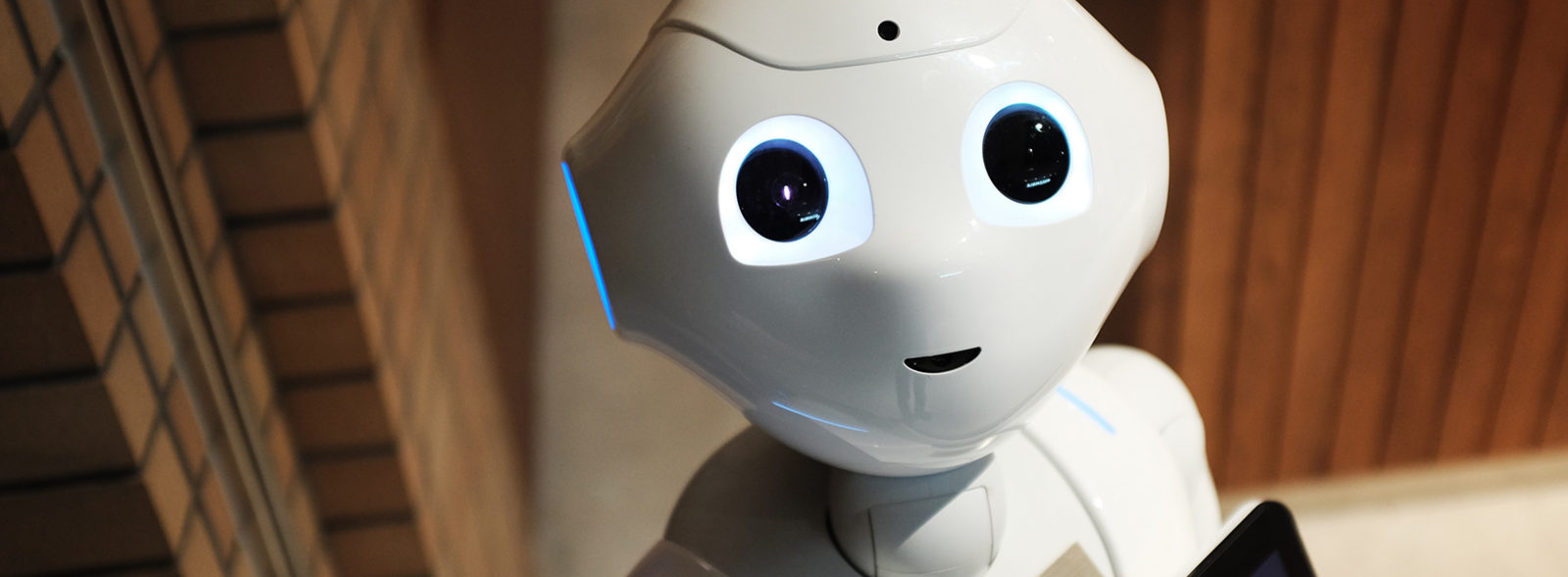As a digital copywriter, it’s important to always have one eye on the future. Whether it’s staying up-to-date with industry news or keeping tabs on technological advancements, things are moving forward all the time in the digital world and it’s important not to be left behind.
Most of the time, this is all fine and dandy. Having always been drawn to the thought of living in a Jetsons world, this is actually pretty awesome. As far as I’m concerned, flying cars can’t arrive soon enough.
Here comes the but. Despite how exciting and necessary technological advancements are to making life in the modern world easier for us all, there’s one evolvement that quite justifiably gives me the heebie-jeebies.
The droids are coming for my job.
Ok, that might be a bit of an exaggeration. But if recent developments are anything to go by, copywriting will be among the first round of skills to be deemed replaceable by robots in the next five years or so.
Hold on to your pens, fellow creators of copy!
But before you jump to the conclusion that this post is going to be an overly defensive piece justifying my skill – you’ve got it wrong. Kinda. See, the way I see it is that copywriters could never be replaced by robots. However we could – and should – learn to coexist.
Artificial Intelligence: A copywriter’s friend or foe?
To anyone who has been taking notice, the notion of a robot taking over the role of a copywriter is not actually just a future fantasy. PingGo, a Scottish startup, is taking on PR firms by writing press-releases with an algorithm. It works by asking the user questions, before cleverly weaving the answers into sentences in a professionally-written template.
Elsewhere, Goldman Sachs is financing an ‘automated copywriting’ startup called Persado to also perfect the magic art of scientific algorithms in a bid to “generate a precise combination of words, phrases, and images that can motivate any audience”.
American Express, Vodaphone, eBay and Expedia are just some of the clients that claim to have seen an almost 70% improvement on click-through rates in marketing material since using the service.
So if a programme can learn to stuff sentences with key words, come up with catchy taglines or even be set to write to an appropriate tone of voice, it’s hard not to ask the question:
Are the days of a human copywriter numbered?
The magic of human empathy
In the humble opinion of this copywriter made up of good ol’ fashion flesh, bones and a pumping heart, the answer is no. This is because there’s one attribute a robot could never have. Or at least, not as sophisticated a version of that of a human.
I am of course talking about empathy. That magical power (the majority of) humans experience when connecting in some way to other humans. And if you’re in the business of copywriting, you should be well-versed in the importance of empathy when crafting your words.
The use of empathy in copywriting is all about getting into the psyche of a customer or client, making it far more complex than just throwing words together to sell stuff.
This is because empathy allows you to get inside the mind of a customer by figuring out their needs and wants. The use of empathy in copywriting is all about getting into the psyche of a customer or client, making it far more complex than just throwing words together to sell stuff. Although, that’s ultimately the plan.
Here’s an example of what I mean. Say John is embarrassed about the fact he’s gained a heap of weight that he can’t seem to shift. A copywriter tasked to write copy promoting a gym membership might be tempted to run with the ‘work out and lose weight fast’ spiel. But a dose of human empathy reminds us there are more sensitive – and in turn clever ways – to go about this:
“If you’re feeling a little out of shape recently, you’re not alone.”
Straight away, using language that identifies with the customer personally and makes them feel part of a collective, is an effective use of empathy. Something that the last time I checked, a robot can’t do. Unless you’re referring to Samantha in the film Her.
Learning to live with droids
Despite the above, it’s not to say that the role of a copywriter isn’t changing. Like it or not, robots are becoming more sophisticated and will continue to do so. So in my eyes it’s less about a copywriter being replaced by a robot, and more about learning to work together.
My version of an ideal future is a world where robots work alongside humans to make the quality of work produced even better. Perhaps a robot or programme could create shorter bits of micro copy, or drier more technical pieces of writing that require less personality or tone of voice.
A human will still be needed to proofread this work, but it would take some of the more mundane tasks out of a copywriter’s hands, freeing up more time to be spent on work that requires a bit more thought or creativity.
Whatever the future holds, it’s important as a copywriter to stay sharp and agile in an ever-changing digital world. It’s easy to get complacent, but we must keep our fingers on the pulse and learn new skills whenever we can.
Otherwise, Mr. Robot won’t be far behind to step up and lend his bionic hand to help.

My somewhat bleak take on this is that by the time bots are all good enough to pass the Turing Test, we’ll have bigger things to worry about than copywriters losing their jobs.
Good point, John!